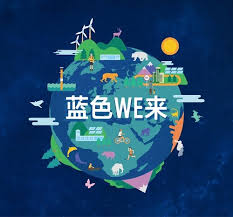Don’t be overly impressed by China’s climate goals
1. What happened ?
The United States of America (USA) and China have pledged to cooperate on climate change ahead of a virtual climate summit called by President Biden on April 17 2021.
2. What‘s the background?
Amid the ongoing tensions between the two countries over trade, geopolitics, and human rights, this joint statement is a signal for limited, sectoral cooperation. And a much-needed one: Washington and Beijing account for some 50 percent of global greenhouse emissions. Both sides have enormous work ahead to realize their announced climate goals. Take China: according to Chinese experts, Beijing would have to invest around 490 billion USD per year (roughly the amount of their 2008 stimulus package). Some 57 percent of China‘s energy still comes from coal and Beijing would need to close some 18 percent of its 1037 coal power plants to come close to its goals. However, local coal hubs like Inner Mongolia have been adding up to 100 percent new coal plants to add tax revenues to their ailing accounts and keep unemployment at bay. The next steps in this announced joint work should also not be taken for granted: Wang Yi, China‘s foreign minister has said the cooperation would not happen if the US keeps „interfering in China‘s internal affairs“. Also, John Sullivan, National Security Advisor, made it clear that this joint statement doesn‘t mean Washington is giving up on its tougher line on China.
3. What does this mean for you?
Expect continuous tensions between the two countries and as the EU is leaning more towards stronger transatlantic cooperation you should upgrade your risk assessment for your China engagement. Don‘t be overly impressed by China‘s climate goals, follow Chinese expert‘s debate closely and see whether Beijing comes up with a specific roadmap of how to reach these goals.
4. How ESG Next can help you on that
We offer you a comprehensive risk assessment regarding your China engagement, including due diligence of your current as well potential Chinese business partners.

